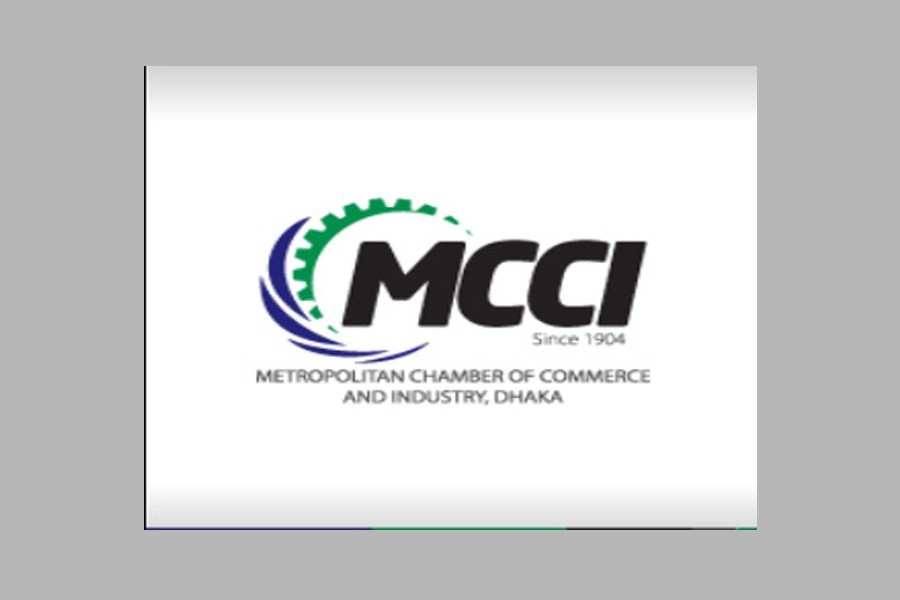
Published :
Updated :

Experts have suggested separating ownership from management in family businesses to ensure long-term sustainability, saying that professional executives should run operations under ethical guidelines set by the owners.
They have also emphasised that strong governance frameworks can guide executive decision-making and foster a sense of ownership when company boards duly recognise and reward leadership contributions.
The observations came at a seminar titled "Where Family Values Meet Future Vision: Strategy for Sustainable Succession" on Tuesday.
The event was jointly organised by the Metropolitan Chamber of Commerce and Industry (MCCI), Rajah & Tann Asia, and AAZ Partners in the capital.
Speakers underscored the importance of transferring businesses to the next generation through proper management practices.
In their keynote presentation, Alroy Chan and Abdul Jabbar Bin Karam of Rajah & Tann Asia, Singapore, stressed that financial, managerial, legal, and technological support must be extended to successors to ensure long-term sustainability.
Moreover, while expanding operations, they urged family businesses to uphold values and integrity as guiding principles.
They also said if family businesses thrived, it would encourage greater foreign investment in the country.
Besides, they called for involving the next generation in decision-making, while ensuring the separation of family matters from business through a distinct governance structure.
Mirza Salman Ispahani, managing director of MM Ispahani, said family businesses must allow professionals to lead for sustainable growth.
"Businesses need to evolve by separating ownership from day-to-day management and allowing professionals to run operations to ensure long-term sustainability," he added.
He also said his family started the business after moving to Bangladesh in 1948 following the partition of India.
"Over the years, business grew because of ideas, expectations, and professionalism across generations," he added.
He described the tendency of owners to interfere in daily operations as one of the challenges for family businesses.
Tapan Chowdhury, managing director of Square Pharmaceuticals, underscored the importance of professionalism and governance in ensuring the continuity of family businesses across generations.
Reflecting on his family's legacy and the values that shaped Square Group, he said their family friendships and shared values laid the company's foundation, and his father's vision, combined with trust and professionalism, guided Square's journey.
He also highlighted the cultural aspects of family-run businesses, noting how personal values and traditions often intersect with organisational practices.
"For the first generation, building trust and discipline was central. Over the years, we realised that continuity requires more than family loyalty - it requires professional management and proper governance structures," he added.
M Saiful Islam, former president of Dhaka Chamber of Commerce and Industry, stressed the importance of standardised systems and digitisation to ensure smooth succession in family-owned enterprises.
According to him, many businesses have achieved remarkable success under their founders' leadership, but continuity depends on structured processes.
"If you can standardise processes and systems, they will guide you to better results. A well-defined system ensures smooth transition across generations," he added.
"Ninety per cent of managers are doing routine work. It is the enterprise owners who created the blueprint of success through their visions and inputs,"
he explained.
In his welcome speech, MCCI President Kamran T Rahman said family-owned businesses had been key to the economy for ages.
Moreover, driving employment and innovation, they also preserved values, traditions, and legacies passed down through generations, he said.
"Looking forward, we must face this often-missed fact - succession is more than a passing of the torch; it is strategically essential," he added.
Anis A Khan, MCCI director and managing partner of AAZ Partners, said succession planning must evolve beyond contingency.
"It must become a cornerstone of strategic thinking. In an era marked by rapid technological change, shifting demographics, and global uncertainty, the ability to pass the baton with clarity and confidence is not just a family concern - it is a business imperative," he added.
M Anis Ud Dowla, founder and chairman of ACI Group, said good governance and proper control over the utilisation of assets were essential.
"No matter what we do, succession needs to be improved as no one has a clear plan for the next generation," he added.
Feroz Rahim, group managing director of Rahimafrooz Bangladesh, said, "I represent the second generation."
"We have a family council, which we call Board Governance. We must separate governance from ownership."
newsmanjasi@gamil.com


 For all latest news, follow The Financial Express Google News channel.
For all latest news, follow The Financial Express Google News channel.